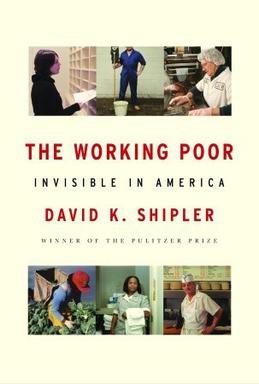Chris Powell: Paid time off isn't what working poor need most
Now that the General Assembly is about to pass legislation that Connecticut Gov. Ned Lamont will sign establishing a state agency to arrange paid family leave insurance for all working people in the state, maybe its details will start getting critical examination.
After all, if, as the legislation's advocates say, the working poor can't afford to take time off to care for a sick relative, how well can they afford the half-percent pay cut they will endure with everyone else to finance the insurance program? While the state is raising its minimum wage in phases, even when it reaches $15 an hour or $600 a week in a few years it still won't be nearly enough to support a family, even with paid leave.
The big problem here is that with so many children being born to single women who are qualified only for menial work, family formation is overtaking education and job skills and thus income.
Family leave benefits will be 12 weeks paying as much as 95 percent of regular income for the lowest-paid people, less for higher-paid people. But higher-paid people don't need the insurance at all, since its benefits are limited enough that such people could insure themselves with ordinary savings without the tax increase. Indeed, the paid leave insurance program is mainly income redistribution to the poor, a way of making the state income tax more progressive.
That might have been a fair argument for it but its advocates don't seem to have made it, apparently having meant to fool the non-poor into thinking that they would gain from paid leave too.
Of course not all people paying the new half-percent tax will encounter circumstances allowing them to claim benefits -- unless there is no claim checking or claim checking is so lax that almost any claim is accepted and people come to realize that they can collect by finding or inventing relatives or friends who need care. Administration of the program remains a big question.
As with other forms of insurance, most people, including the working poor, won't need paid family leave very often. But paid leave is far from the insurance most people do need and would use more often if they had it -- that is, better medical insurance. Even many people who have medical insurance face deductibles so high that they defer treatment or are badly damaged financially by getting treatment. While state government provides medical insurance for the indigent and subsidizes it for the working poor, it is often deficient.
That's where all new money to help the working poor should go.
Paid family leave is a triumph of Democratic Party rhetoric that it's "not fair that people should have to choose" -- as between their jobs and caring for sick relatives, between medicine and food, between going to college and paying for college, and so on until it is possible to imagine that everything should be free.
The French economist Frederic Bastiat saw it coming two centuries ago. "Government," he wrote, "is the great fiction by which everybody tries to live at the expense of everybody else." And of course the Democratic Party is the party that can't choose between the social goods it advocates and the endless, stupid, and fantastically expensive war in Afghanistan.
What's really not fair is that Connecticut taxpayers who have only mediocre self-funded retirement plans are on the hook for at least $70 billion in unfunded obligations for the comfortable defined-benefit pensions enjoyed by state and municipal government employees. The governor and Democratic legislators are proposing to run up the pension debt still more. How progressive!
Chris Powell is a columnist for the Journal Inquirer, vin Manchester, Conn.
